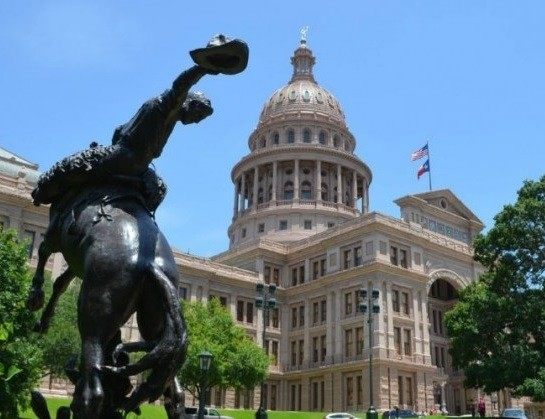Benjamin Franklin wrote in 1789 that “nothing can be said to be certain, except death and taxes.”
There’s nothing we can do to avoid death.
Fortunately, the Texas Legislature is doing all they can during the final days of its session to ease the pain of paying taxes.
You’ve probably heard the political discussion between the Senate’s $4.6 billion package of relief in property and franchise taxes, otherwise known as the margin tax, and the House’s $4.9 billion plan of cuts in sales and margin taxes.
The final package appears to be closer to $3.8 billion, with the Senate’s property tax relief in the form of a $10,000 increase in the homestead exemption, and the House’s margin tax cut of 25 percent.
Whichever tax plan makes its way to Governor Greg Abbott’s desk, Mr. Franklin would be glad to know that Texans could avoid one of his certainties by not paying higher future taxes.
Let’s consider the details of the initial packages, because the final package hasn’t been passed, and similar proposals may be submitted in the future.
The Senate’s initial package included $2.48 billion in margin tax cuts that reduce the two rates 15 percent; raise the ceiling to file an EZ form to $20 million at a lower 0.331 percent tax rate that lowers the huge compliance cost; and increase the exemption level to $4 million.
The other piece would have provided $2.15 billion in local property tax relief by raising the homestead exemption from $15,000 to 25 percent of the statewide median home value, putting it closer to $33,000. Estimates show that this could save households more than $200 per year.
With the potential final package cutting the homestead exemption almost in half, the savings per household could be closer to $125 per year.
To avoid the situation in 2006 when any property tax relief was eroded within two years, legislation in both chambers that would structurally reform property taxes to safeguard against them being higher in the future should be passed.
Taking a different approach, the House plan, which looks to be in the final package, includes $2.56 billion in margin tax cuts by lowering the rate 25 percent and raising the revenue ceiling the same as the Senate to file the EZ form.
The House package also included $2.31 billion in state sales tax relief by cutting the rate from 6.25 percent to 5.95 percent, but this didn’t gain much traction. Estimates show this could have let families of four keep about $170 per year more in their pockets.
Considering the best economic policy, research by the Texas Public Policy Foundation (TPPF) and others, including the Legislative Budget Board (LBB), find it is to eliminate the margin tax. TPPF recommends this is the best plan for Texans and has done so long before passage of the margin tax in 2006.
Though businesses pay the margin tax directly, individuals will benefit after it is repealed. The LBB and TPPF research using different dynamic economic models find $8 billion to $16 billion in personal income gains, translating into a family of four saving possibly $2,400 per year, and 110,000 to 129,000 new private sector jobs by 2020.
These economic gains—particularly to lower income individuals—would contribute to increases in sales tax and other tax revenues, replacing much – if not all – of the lost margin tax repeal. With a potential two-year price tag of $9.4 billion in reduced revenue from full repeal, lawmakers could have used all the initially proposed tax relief to cut the margin tax in half or eliminate it in 2017.
Doing so would have allowed Texas to join only Nevada, South Dakota, and Wyoming without a direct business tax or an individual income tax. The Tax Foundation finds that full repeal would generate more entrepreneurial activity as Texas improves her business tax climate from 10th to 3rd best nationwide.
While the final package will likely not reach this ultimate goal, as noted by Senate and House leaders, it would appropriately place most of the cuts toward the margin tax enhancing the future of Texas’ prosperity, and setting it on a path to further championing tax policy.
Vance Ginn, Ph.D., is an Economist in the Center for Fiscal Policy at the Texas Public Policy Foundation, a non-profit, free-market research institute based in Austin. He may be reached at vginn@texaspolicy.com.

COMMENTS
Please let us know if you're having issues with commenting.